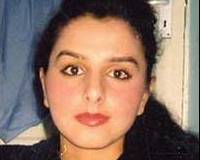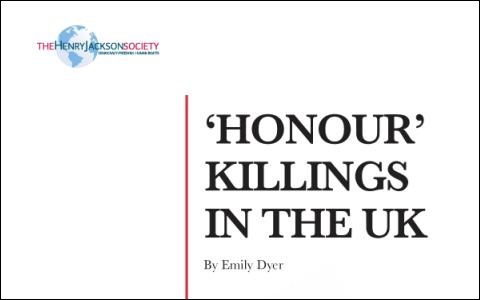London police repeatedly rebuffed frightened honour killing victim
by - 16th January 2015
 HONOUR killing victim Banaz Mahmood begged police to rescue her from the abusive family she feared would one day end her life.
HONOUR killing victim Banaz Mahmood begged police to rescue her from the abusive family she feared would one day end her life.
The 20-year-old from Mitcham in South London pleaded with the authorities to listen to her fears male relatives were plotting to kill her.
But officers sent the frightened woman - who had angered her conservative Muslim relatives by turning her back on an arranged marriage and dating another man - back to her family address on five separate occasions.
Fast forward to 2006 Iraqi Kurd, Banaz, was eventually murdered by male relatives. She was strangled with a bootlace and her body stuffed in a suitcase before her remains were buried in the garden of an associate in Birmingham.
Her desperate appeals for help even featured in a heart-wrenching 2012 ITV documentary titled Banaz: A Love Story, in the form of videotaped footage of police interviews.
Change
Now in a bid to force a change in public perceptions campaigners have secured a national memorial day to victims of honour-based violence (HBV) including Banaz.
The announcement comes as experts have warned the 29 cases of British 'honour killings' featured in the media are just the 'tip of the iceberg' across the country.
The 'Britain's Lost Women' campaign to create an annual day of remembrance for victims came to fruition after fashion bible Cosmopolitan teamed up with Karma Nirvana - a charity that works to end forced marriage and honour killings.
The initiative received a huge 115,000 signatures pledging support for the plan as well as support from the three major political parties.
The date chosen for the memorial - July 14th - was picked specifically as it was the birthday of Shalfilea Ahmed a 17-year-old, who in 2003, was suffocated to death in front of her siblings by her parents.
According to estimates 5,000 women across the world are being killed every year for bringing "shame" upon their families, with at least 12 in the UK.
Awareness
Having experienced honour-based abuse in her family, the founder of Karma Nirvana, Jasvinder Sanghera, said she hoped the national day would increase awareness of the problem.
Last night Ms Sanghera, Chief Executive of Karma Nirvana, explained: "Girls and women can be murdered for the most basic freedoms – the right to education, independence or wanting to choose their partner. A day of memory will honour these women and dishonour the crime. It will also raise awareness so anyone can spot this abuse and potentially save someone's life."
Meanwhile Louise Court, Editor-in-Chief of Cosmopolitan added: "Convictions are shockingly rare, but every year tens or possibly even hundreds of British women are killed by their own relatives for betraying their so-called 'honour'.
"A national day of memory is a vital step towards remembering the victims of honour killings and empowering women and girls suffering this type of abuse to speak out and seek help."

The announcement came as a second report on 'honour' killings in the UK was released by think tank Henry Jackson Society at the House of Lords last week.
Author Emily Dyer said it was hard to quantify the full extent of the problem but that Karma Nirvana received more than 800 calls a month to its helpline, of which the overwhelming majority are from victims.
Boundaries
The HJS findings concluded that those most at risk in the UK were members of the Hindu, Muslim and Sikh communities with links to South East Asia, the majority ethnic group being Pakistani.
Research suggests victims are targeted when they break established religious boundaries.
Afshan Azad from Manchester, for instance, was assaulted by her brother in 2010 for being in a relationship with a non-Muslim man.
Sanghera also argued that the government is not doing enough to address the problem despite bringing in legislation in the form of the Forced Marriages Act of 2011.
More than 2,000 Asian girls have gone missing since 2008 – prompting Sanghera to claim the authorities were too frightened of causing offence to confront the issue.
The campaigner argued the problem would have received a more robust response if the abuse had involved ‘white girls’.
Sanghera recounted how a police officer stood up in uniform at an event she was speaking at in 2013 and told her, “you could not have loved your family if you ran away,” before stating that she had no honour.
